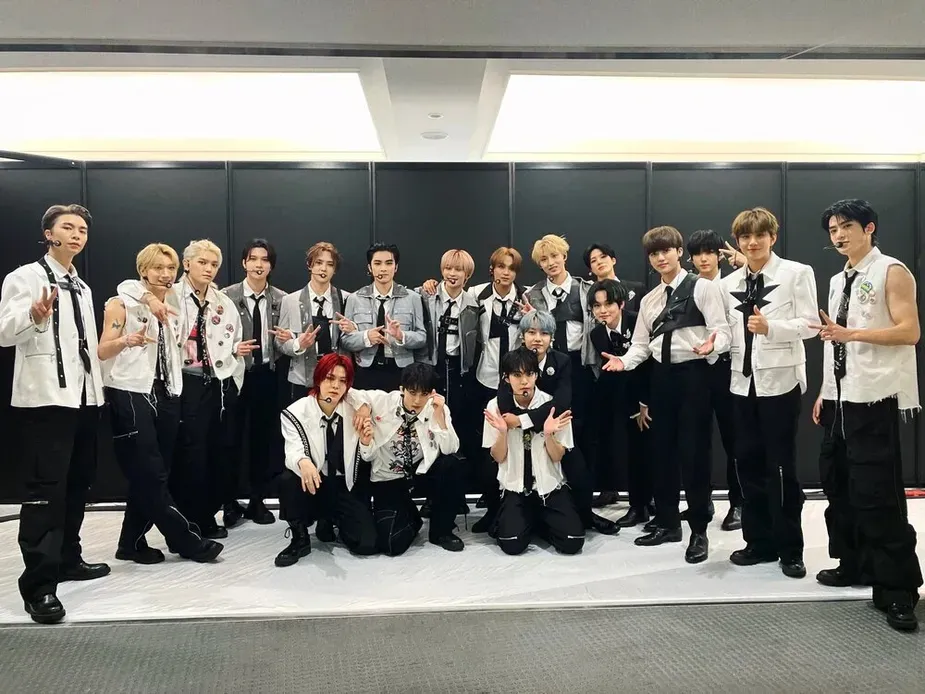
As K-pop continues to dominate the global music scene, industry leaders are faced with the challenge of sustaining its success. They unanimously recognize the importance of localization, in which the K-pop approach is adapted to cater to the unique needs and preferences of various international markets.
The K-pop Strategy
In 2016, Lee Soo Man, the founder of SM Entertainment, proposed a revolutionary concept. This involved debuting a group with an infinite number of members and subunits stationed in different cities all over the world.

The creation of NCT (Neo Culture Technology) was driven by this vision, resulting in a large boy group consisting of 26 members, who were divided into various subunits. The group’s main goal was to expand globally, with a particular focus on Japan and China. Despite this ambition, NCT has only gained significant recognition in Korea.
Despite NCT’s initial slow start, the unexpected worldwide triumph of BTS encouraged leaders in the K-pop industry to reignite their aspirations.
WayV, which is a subunit of NCT under SM Entertainment in China, and HYBE’s &Team in Japan are making efforts to remain active.
Despite being formed by JYP Entertainment and Sony Music Entertainment Japan in 2020, NiziU, an all-Japanese girl group, has only achieved moderate success on a global scale, although their singles have charted high in both Japan and the US.

Despite this, K-pop giants such as JYP Entertainment, HYBE, and SM Entertainment remain committed to the idea of adapting K-pop for different markets. They are now collaborating with local entertainment companies to test out the K-pop training and development model in Western countries, specifically the US.
Earlier this year, JYP formed the multinational girl group VCHA in collaboration with American record label Republic Records. The group consists of a Vietnamese member named Kendall Ebeling. The company also introduced NEXZ, a group of six Japanese members and one Korean member, who simultaneously debuted in both the Korean and Japanese markets with the goal of achieving international success.
Risky Move
The Korea Herald reported that this decision has sparked controversy. Many are skeptical about the validity of calling a group “K-pop”if all of its members are foreigners. Additionally, the chances of these groups achieving success, particularly in the Western market, are considered low.
Lim Hee Yun, a critic of pop music, highlights the distinct charm of K-pop artists in their appearance, stage performance style, and personalities that draws in Western audiences.
“Lim Hee Yun stated that during the initial rise of K-pop in the US and Europe, Western audiences were unaccustomed to seeing idols don heavy makeup and elaborate stage costumes. While the idols were amiable offstage, their onstage performances were noticeably distinct. This novelty and allure of K-pop idols in the West would not be present if Western artists were to be trained and perform in the K-pop style, as they would be perceived as too familiar in terms of appearance and cultural background.”

Similarly, according to Lim Jin Mo, a fellow pop music critic, the success of K-pop can be attributed to the fact that its artists are Korean.
According to the expert, having one or two foreign members in a group may garner attention from fans in their home country. However, if the entire group is made up of members from the same country, fans may become uninterested. The expert shared an example of asking Thai fans if they would support a K-pop group with only Thai members, and their response was negative.
According to Grace Kao, a Yale University professor who specializes in ethnicity, race, and migration and also teaches about K-pop, a significant factor in the popularity of K-pop is its Korean origin.
According to Kao, the inclusion of non-Korean members in K-pop groups does not hinder their potential for success. However, a significant aspect of K-pop’s appeal to American fans is its origin from Korea. The distinct flavor of K-pop artists, songs, and choreography is what draws many fans in. If K-pop groups are not from Korea and their songs are not in Korean, it may be more difficult for fans to identify it as true K-pop. This was stated in an interview with Kao by The Korea Herald.




Leave a Reply ▼